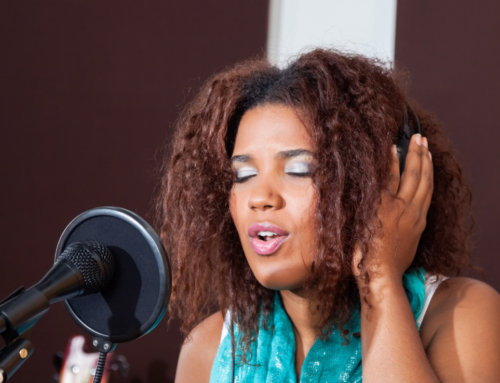It is certainly both exciting and refreshing to see a young face of the Trinidad and Tobago music landscape, pursuing excellence in the international realm. Since his spectacular performance at the 2016 Soca Monarch, which saw him winning the competition with his hit song Cheers to Life, Aaron ‘Voice’ St. Louis has captivated the local industry with his vocal and performance abilities. His 2017 follow-up, Far from Finished is equally phenomenal receiving brilliant reviews from fans on social media. Many have viewed the song’s most recent achievement of one million views on YouTube as positive. While this may be so in some measure, promoting the artist, genre and islands, it forces us to think about what this means for the local music industry and for the team behind the song from a commercial perspective.
Issues at Play
As broadband internet becomes faster and more accessible in the Caribbean many citizens are making greater use of streaming technology such as YouTube for discovering and experiencing music. These services allow users to access their desired recordings, whenever they feel like it, via their computers and mobile devices. However, one must wonder, if artists and songwriters are entitled to royalties from these services for their works, how much these services pay and how can relevant stakeholders in the region receive what is due to them.
Licensing and Compensation
As we would have pointed out in a previous article explaining the steps to starting a legal online music service, streaming music services require a mechanical license from the songwriter or publisher to copy their song onto the services’ servers for streaming. In addition to this, the service will also require a performance license which allows fans to play music using the website and mobile app. Similarly, the owner of the sound recording is entitled to compensation for use of the recording of the song also commonly called the Master.
You may be asking yourself, how can a US based company like YouTube go about getting these clearances from a local act? If the local songwriter is a member of Copyright Music Organisation of Trinidad and Tobago (COTT) it is easier since this organisation has reciprocal agreements with US agencies that can administer the mechanical and performance rights of a local act and then remit the royalties collected. It gets tricky as there is currently no local agency with reciprocal agreements with equivalent foreign agencies dedicated to administering the rights of the Master owner and the only way to legally use these recording will be for its actual owners to directly upload it to YouTube or via a digital aggregator such as Tunecore.
What many local acts have been doing is going in search of promotion by partnering with YouTube marketers such asJulian Promos, as is the case of Far From Finished, to get the music out as quickly as possible, most times with little consideration of their rights and compensation.
I’d Give You a Fraction of a Cent for that Sir!
While YouTube declares that it paid 1 Billion in royalties to the recording industry in 2016, revenue for individual artists and songwriters, from these streaming services including Spotify are disturbingly low. Many international acts have been decrying low royalties from these services in 2016. In the United States, records labels have recognised that they would lose out on digital revenues for their master recordings in the absence of agreements with digital services. For this reason, Universal Music Group, Sony Music, Warner Music, Abu Dhabi Media and Google formed an alliance called Vevo aimed at monetizing their rights through YouTube. These labels provide high quality content and share in the advertising revenue from the content on YouTube. Where are our legal digital music services geared towards providing both promotion and royalties for Caribbean artists and songwriters?
Models for the Future
As opposed to engaging in mere talk, at DianJen we like to provide recommendations that can improve the operations of the Caribbean industry. There is a critical need for music industry education across the Caribbean. All stakeholders must be fully educated on the nuts and bolts of copyrights, publishing and licensing among other areas. It is only through this education, that they can be capable of making deals that reflect our unique interests while protecting themselves. Just as online music marketers are making headway into promoting via YouTube and social media they should look at going one step further and forming alliances for the collection of digital revenue for artists and owners of sound recordings.
State organisations charged with development of the music industries in their various islands need to enable the growth of home grown digital music services specializing in indigenous content. Such support can involve improvement of technical infrastructure for music streaming and web and mobile application development assistance. A venture like this could also include the creation of an API (Application Programming Interface) for Caribbean Music which can then be licensed to music business/ tech entrepreneurs regionally and around the world. The API will provide access to the largest catalogue of music that is indigenous to different islands and make it seamless for new Apps and digital services to be created.
Along similar lines, there needs to be clarification of who owns which rights, especially Master rights so that licensing them becomes less pain-staking. Indigenous Digital music services will have a hard time becoming profitable if the correct rights-owners cannot be ascertained; since the companies can face infringement actions if they provide access to unlicensed music and will not be considered as suitable targets for acquisition or partnerships with sponsors and brands. Conversely, Collective Management Organisations need to provide attractive terms for regional music businessmen wishing to start online radio stations and on-demand streaming music services. Rates should be more favourable to those wishing to specialise in indigenous content.
In the absence of agencies to collect their revenues, the DIY (Do-it-Yourself) rights owners should look at registering their individual works with foreign agencies. For instance, Tunecore recently started a collection service whereby they collect up to 13 different types of royalties for songwriters. Audiam is another such service that finds videos on YouTube using your compositions without a license, authorizes YouTube to place ads on them and pays the rights-owner a percentage of the revenue. In addition to these, SoundExchange can be looked into for the collection of artist and record company royalties for use of the Master in some digital services such as internet radio.
It is important that we move beyond the need to satisfy short-term desires such as the quest for airplay and promotion and look at the wider picture as we advance if we really want to see a developed regional music industry. It is very likely that even with 1 million views on YouTube, our brilliant upcoming artist- Voice, will not realise any revenue for use of his work in digital services due to the issues highlighted above. Additionally, as technology advances in light of pervasive foreign digital music services, we are leaving money on the table because of our lack of organisation and not creating our own.




